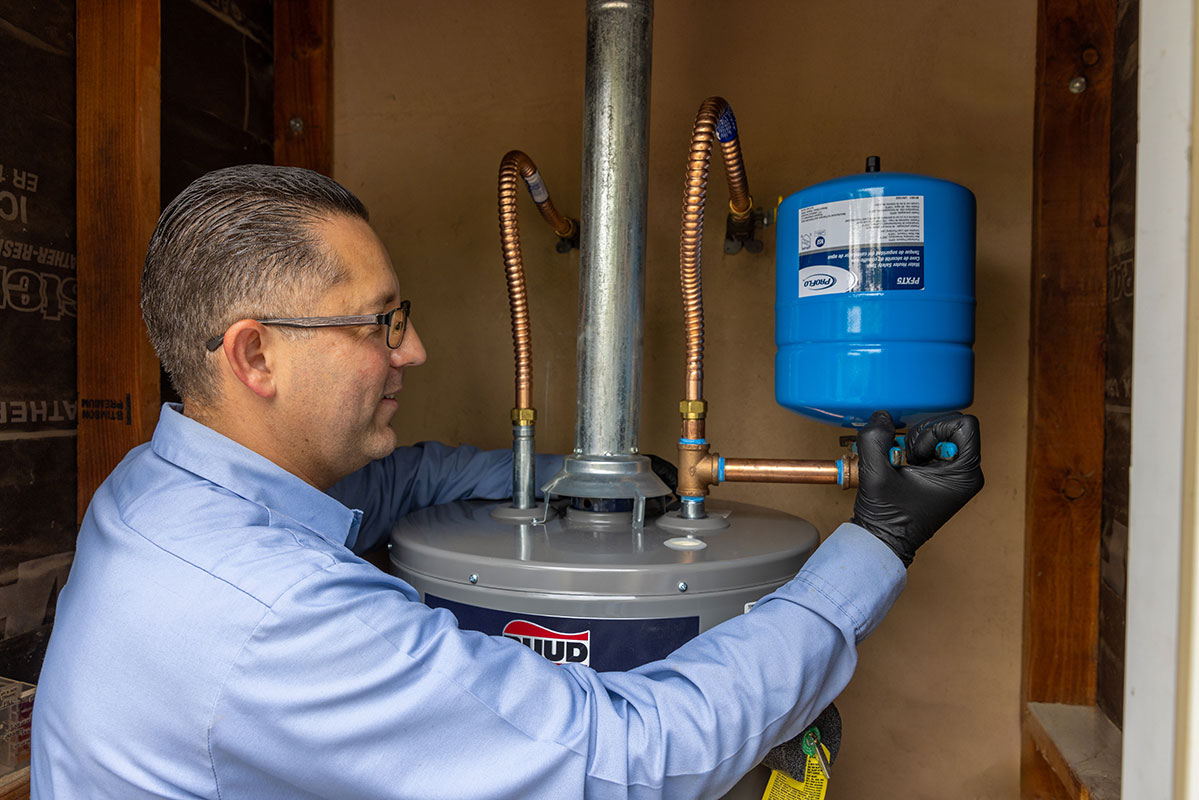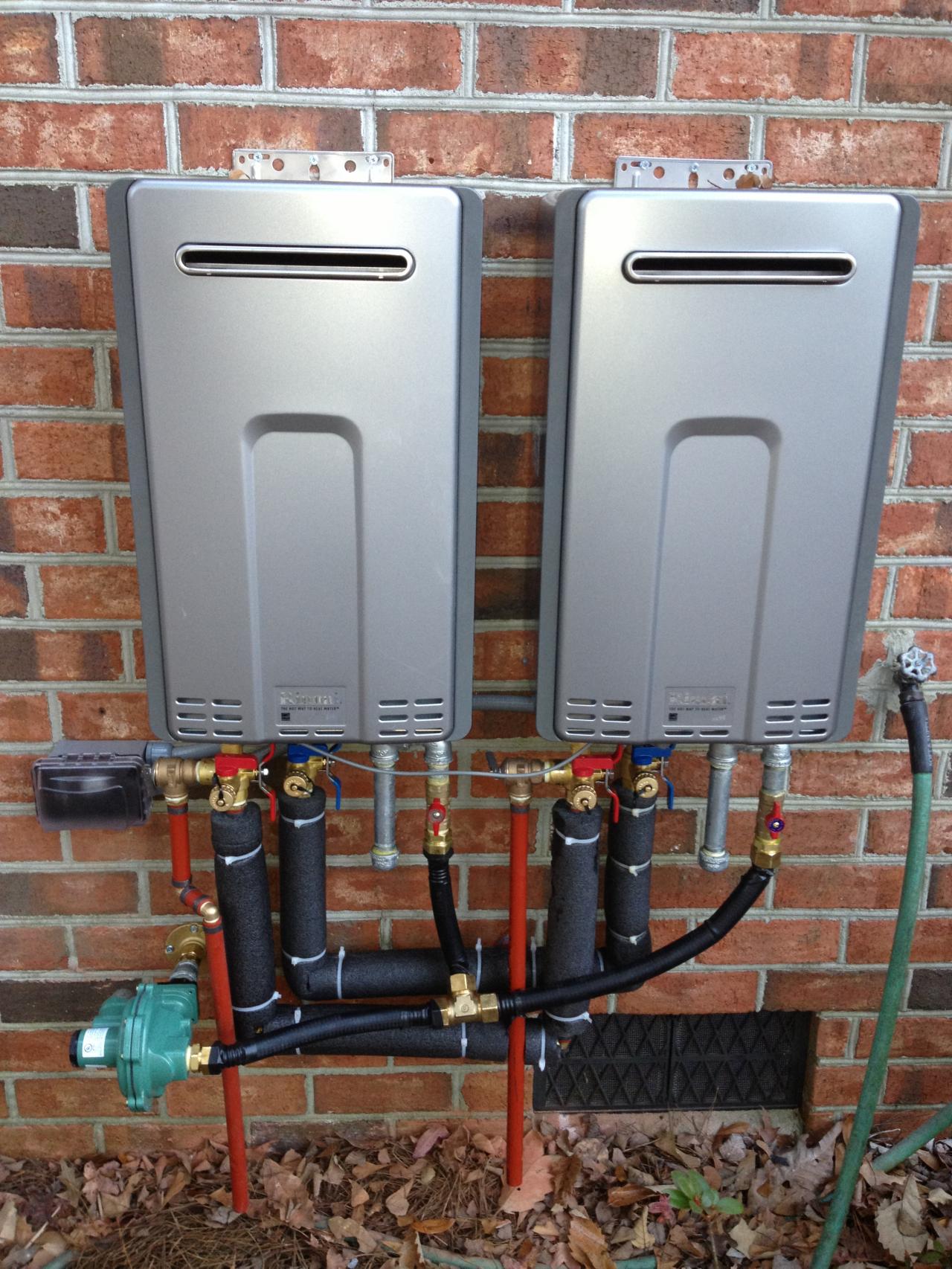Total Overview to Water HeaterSetup and Substitute
Recognizing the complexities of water heating system installation and replacement is vital for homeowners seeking to guarantee performance and reliability in their warm water supply. From choosing the ideal type and size to performing a smooth installment process, a number of aspects must be thought about to prevent usual challenges. This guide will offer you with the needed actions and understandings to navigate the complexities of this home renovation task, while also highlighting crucial upkeep techniques that can prolong the life of your system. As you check out these facets, you may discover on your own reassessing your present arrangement and recognizing locations for enhancement.
Kinds Of Hot Water Heater
When taking into consideration water heating system setup and replacement, it is important to recognize the different types of water heating systems offered on the market. The most typical types consist of storage tank hot water heater, tankless water heating systems, warm pump hot water heater, and solar water heating systems.
Storage tank hot water heater are standard systems that store a details volume of warm water, making them conveniently available when required. They are typically cheaper in advance but might incur greater energy costs gradually because of warm loss. On the other hand, tankless water heaters provide hot water on need, getting rid of the need for storage space. They are energy reliable and can save area, but their preliminary prices are normally higher.
Heatpump hot water heater make use of electricity to transfer warm from the air or ground to warmth water, offering significant energy savings but needing even more room and specific setup problems. Solar water heaters harness solar energy to heat water, offering an environment-friendly choice with prospective long-lasting expense financial savings, although they commonly call for a back-up system for gloomy days.
Comprehending these choices guarantees informed choices regarding installment and substitute, satisfying specific demands and preferences.
Choosing the Right Dimension
Choosing the suitable size for a water heating system is vital to make sure ideal performance and efficiency. An unit that is also little will struggle to satisfy home demands, bring about irregular hot water accessibility and enhanced power usage. Conversely, an extra-large water heating unit can lead to unnecessary energy waste and greater utility expenses.
To identify the appropriate size, take into consideration the family's peak warm water usage. This can be computed based on the number of owners and their common warm water needs. A family members of four might call for a water heater with a capability of 50 to 80 gallons, depending on the use patterns, such as simultaneous showers and laundry.
In addition, assess the healing price, which determines exactly how quickly a heating unit can restore hot water after it has been made use of. For tankless models, emphasis on the circulation rate, determined in gallons per min (GPM), to ensure it satisfies the house's simultaneous need.

Setup Process Overview

Next, the old device should be disconnected and gotten rid of, taking care to adhere to regional codes and regulations pertaining to disposal. When the old device is out, the brand-new hot water heater can be placed in position. This action involves attaching the supply of water lines, ensuring that all installations are leak-free and protected.
After developing water connections, it's important to attach the power supply, whether electric or gas, adhering to the producer's instructions diligently. When all links are made, the system needs to be full of water, and the power can be transformed back on. It's vital to check for leakages and ensure the water heating unit is functioning appropriately before finishing the installation process.
Typical Installation Errors

An additional constant error is disregarding to follow regional codes and laws. Failing to adhere to these requirements can not just lead to safety risks however might additionally result in costly fines or the requirement for pricey reinstallation.
Falling short to protect connections or using the incorrect type of fittings can lead to leaks and water damages. By avoiding these common installment errors, homeowners can guarantee their water heating unit runs securely and efficiently, making the most of efficiency and durability.
Maintenance Tips for Durability
Proper upkeep of a hot water heater is vital for its longevity and ideal performance. Routine evaluations and maintenance can stop costly repair services and extend the device's lifespan. Begin by inspecting the temperature setup; it should normally be set between 120 ° F and 140 ° F for optimum energy performance and safety.
Every 6 months, purge the storage tank to get rid of sediment accumulation, which can harm heating performance and cause rust. To do this, shut off the heater, attach a hose to the drain shutoff, and allow the water run until it is clear.
Anode poles should be examined each year and changed when they are corroded. These rods assist protect against storage tank deterioration over here by attracting harsh aspects in the water.
In addition, check the pressure safety valve consistently to guarantee it is working appropriately. This shutoff is vital for preventing extreme pressure accumulation within the tank.
Finally, think about scheduling a professional maintenance check every few Get the facts years for extensive examinations and maintenance. By sticking to these upkeep pointers, home owners can significantly enhance the efficiency, safety and security, and lifespan of their water heaters, ensuring dependable warm water for years to come.
Verdict
In verdict, appropriate installment and maintenance of water heating systems are important for guaranteeing performance and longevity. By recognizing these vital aspects, house owners can achieve a trustworthy hot water supply while lessening potential problems related to water heating unit procedure.
Understanding the ins and outs of water heater setup and substitute is essential for house owners seeking to guarantee performance and reliability in their hot water supply.Container water heaters are conventional systems that save a specific volume of warm water, making them conveniently available when required. In comparison, tankless water heaters supply hot water on need, getting rid of the demand for storage space. Picking a water heater that is either also little or as well big can lead to inefficiencies, resulting in poor warm water supply or excessive energy consumption.
By comprehending these crucial aspects, property owners can accomplish a trusted warm water supply while minimizing potential issues related to water heater operation. drain cleaning.
Comments on “Gas Leak Repair by Certified Technicians for Maximum Safety at Home”